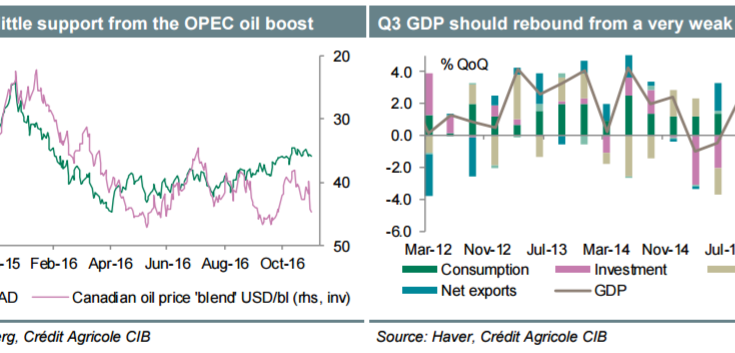The Canadian dollar enjoyed the OPEC Accord as well as the weakness of the greenback. What’s next?
Here is their view, courtesy of eFXnews:
The two key events over the past week have played out favorably for the CAD.
Firstly, OPEC agreed to cut output to 32.5mbd which boosted oil prices. Secondly, Q3 GDP report came in above the BoC’s October projection at 3.5% QoQ annualized thanks to a strong rebound in exports. We believe this number will bring some relief to Canadian policymakers who have been frustrated with slow growth and were forced to revise down their macroeconomic forecasts in the most recent Monetary Policy Report.Â
The latest data should allow the BoC to keep its current message largely intact next Wednesday and re-iterate that the risks to the inflation outlook are “roughly balanced†although probably still “in a context of heightened uncertaintyâ€. The outcome of the US election has probably added to that uncertainty. With NAFTA countries accounting for 78% of Canadian exports, rising protectionism and the threat to dismantle the agreement by the US President-elect should be of concern to Canada. However, the positives are also apparent, namely more hawkish Fed expectations that are keeping the USD strong and the CAD weak, and a potential improvement in the US growth outlook that is likely to have some positive spillovers to the Canadian economy.
Ultimately we believe that rate differentials will keep the USD/CAD close to 1.35 into year-end, while we don’t expect oil prices will be much of a tailwind to the Canadian dollar as WTI struggles to rise significantly above USD50/bl in the near term.


